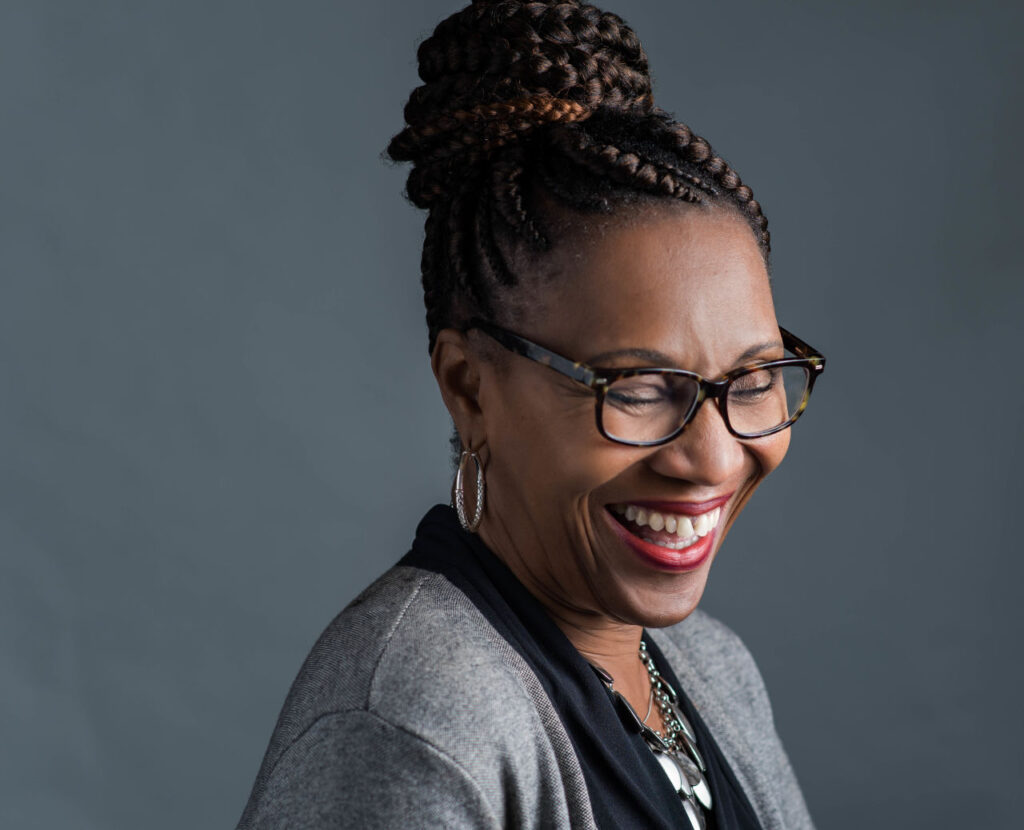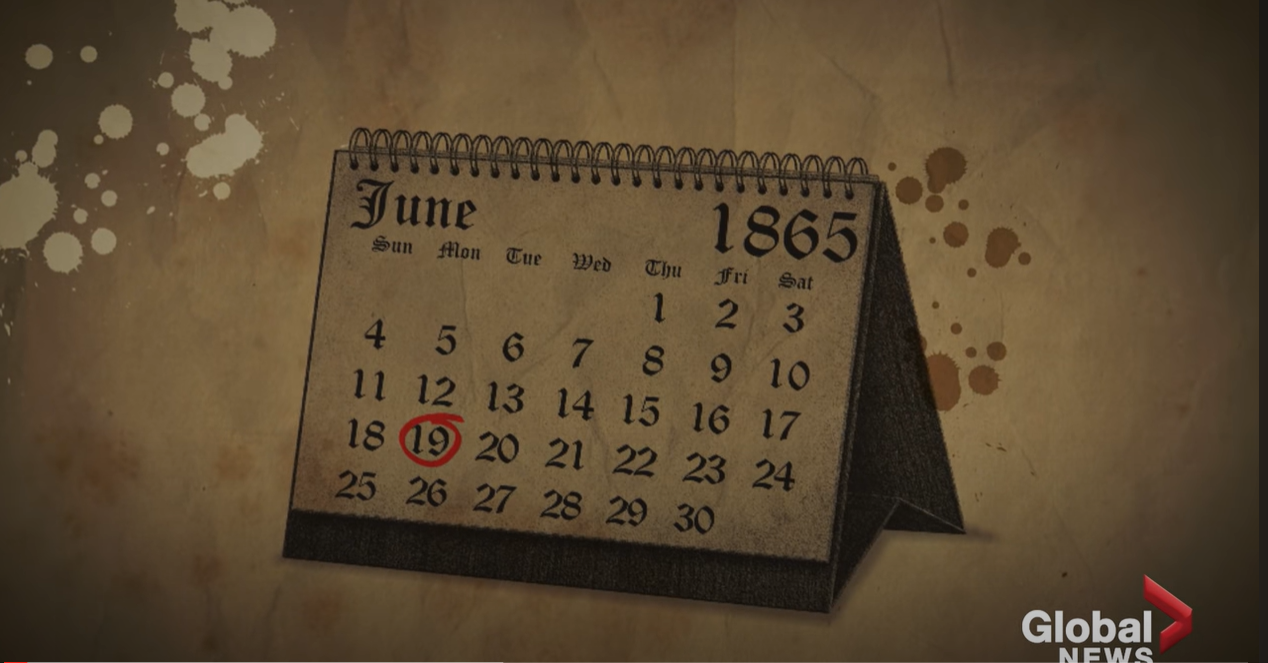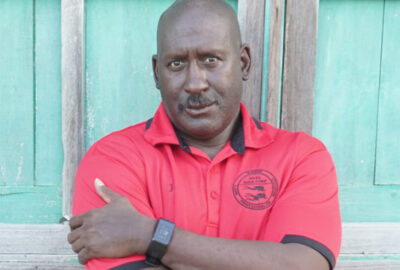We are SOLD OUT of tickets for today, Saturday June 28th.
A Q&A with West Fairmount Hill Community Group Founder Marcia Kimm-Jackson
West Fairmount Hill Community Group and the New England Aquarium work together as part of the The Coalition for a Resilient and Inclusive Waterfront.
By New England Aquarium on Wednesday, June 21, 2023

Marcia Kimm-Jackson is the founder of the West Fairmount Hill (WFH) Community Group, a neighborhood organization in Hyde Park, Boston. As part of their work, WFH holds an annual Juneteenth celebration for the City of Boston. We caught up with Kimm-Jackson to hear about her work, celebrating Juneteenth in the community, and recognizing those who are making a difference.
Can you tell me about West Fairmount Hill Community Group and your role there?
West Fairmount Hill (WFH) Community Group is a community of just over 400 homes (single and multi-family) in Hyde Park, located along the Hyde Park and Milton line. It was formed in 1996 when I moved to the area and invited the neighbors on my street to my backyard to meet each other and begin to work together. I moved to the area after being told by a realtor about eight years prior that I could not buy a home in Hyde Park because I was Black. I decided to turn that pain point into an opportunity and crusade for liberation and inclusion.

The Community Group has evolved since its inception both in focus and practice. When we first started, we worked on connecting with each other and keeping the community safe. Now we have many initiatives that we lead or partner with other groups to lead, including community clean-ups, partnerships with businesses, emergency and general relief drives (emergency supplies for Puerto Rico after the hurricane and earthquake; also distributing emergency information, masks, food deliveries, and COVID tests during the pandemic, turkey giveaways, etc.) to residents, and community members. We have also paved the way for the founding of the Forum for Racial Equity via Educational Experiences (FREEE) in Hyde Park. My role is that as a founder of both organizations and one of the leaders of the WFH community group, and the current President of FREEE. I work with two other residents—Cathy Horn and Nathaniel Thomas—to support residents, and I work with others to set the vision for the group and execute against that vision.
You’ve said Hyde Park is the “missing link of Boston history that you really need to know”—can you talk about that? What can people learn about Boston by visiting Hyde Park?
For me, Hyde Park is a link because it connects you to Boston’s past and future. It has important milestones that tell the story of an evolving and changing community. For example, suppose people learn the history of Hyde Park. In that case, they will learn that it came to be because of the work of determined residents to secede from Milton—it is community-created—and it has key historical events and sites such as the presence of the first Black infantry unit in the Civil War that played a large part in the north’s victories, it is the home to the first Black doctor and several well-known and impactful abolitionists, and it has a “river running through it.”
It is now known for having many amenities that make it inviting and livable—suburban features in an urban setting with lots of green space, a golf course, an evolving and revitalized retail community and river program; a racially, ethnically, socially and economically diverse group of residents many of whom are leader, trailblazers, and changemakers on the local and national stage; it is a family community. Because it is located in the southernmost part of Boston, it links some of the suburban towns to the City of Boston. It’s a gateway. People who come to Hyde Park will learn about Black history, but they will learn about how the city of Boston has expanded its borders to this area and how this area has become the entrance point for so many. Like Boston, Hyde Park is evolving. Hyde Park is a link to Boston’s past and future and completes the story of the real Boston.
Hyde Park has been the center of a lot of important social change and activism throughout Boston’s history. Do you see that spirit still alive in the community today?
You are right; Hyde Park has such rich history focused on the community experiences of its diverse residents and has experienced its own social revolution. As I mentioned earlier, it is the people of Hyde Park that created it and also the people of Hyde Park that fought against a proposed highway to run through it. Now we see the people of Hyde Park working to shape it to be a diverse community that centers community pride, unity, equity, and opportunity for all. It is recognized as one the city’s most reliable voting districts—it uses its voice and voting power!
This translates into many resident-run initiatives underway: Not only is the Forum for Racial Equity doing its part to uplift social and health equity, build a contemporary container for impact, shape a positive narrative in Hyde Park, and build a health and wellness complex, but there are many other efforts underway and evolving. To see the spirit and practice of social action, one only needs to look at several things, starting with the gargantuan efforts of Keep Hyde Park Beautiful in addressing the beautification and environmental concerns of the community; the newly formed Community Input Board that seeking to address the issues of community “development without displacement” and creating a cultural arts/technical education center for youth and seniors; the developers of The Pryde that is centering the housing needs of LGBTQ seniors; the work of Hyde Park Main Streets in calling commercial landlords to the table in service of a more vibrant, economically viable, inviting and relevant retail and restaurant district; The commitment of the allies of Riverside Theatreworks, KS Dance Studios, and the BCYF working on expanding the performing arts scene in the Hyde Park; The Menino Arts Building and YMCA with its focus visual arts and wellness; the work of our elected officials to address senior housing, youth, educational issues, the environment, and infrastructure. You can also read about the valiant fight to stop the destruction and development of the beautiful and environmentally vital urban wild in Hyde Park—Crane Ledge Woods—all resident-driven. Hyde Parkers are proud, determined, and committed. They are willing activists who are fighting—planning, advocating, and working—for the community, and, in this way, that spirit of activism is alive and well.

Can you talk a bit about what it means for Juneteenth to have been established as a federal holiday? Why is it significant that all Americans recognize and hold the day in importance?
Many may know that Juneteenth is celebrated as the moment when enslaved people in Texas were told that they are “free.” While that freedom wasn’t complete, it is significant for Black people as a race and a collective to have that recognition. The creation of Juneteenth as a holiday gave space for the recognition of Black history as part of American history. The holiday opens the conversation about the legacy of slavery and its implications for the story of America and Americans, and in my mind, it provides an impetus to those who are willing to work for change. It is an enabler for many to learn more and be empowered to do more. Juneteenth is significant not just for Black people but for everyone. It illuminates the saying that “none of us are free until all of us are free.”
Black people have always had a spirit of joy–despite their current circumstances and the joy that erupted tinged with anticipation and hope that day and in the times to follow have been a balm for trauma-laden souls and minds and have strengthened us to persevere and even thrive. Juneteenth continues that spirit of joy, expectancy, and perseverance. It says that despite the continued actions in policies, structures, and systems to disavow, disengage, and devalue us as a people and collective, we will be joyful, justice-oriented, and persevere in our work and cause.
The Juneteenth celebration in Hyde Park is called “Juneteenth Joy”—can you talk about creating spaces to uplift and celebrate the Black community and Black voices?
The celebration of Juneteenth is an opportunity for the community to reflect on the history of slavery, celebrate the abolition of slavery, and focus on the ongoing work of freedom. Black people have always practiced hope, anticipation, and vision. They have never waited until things were right and perfect to experience joy. Their joy comes from celebrating the sacrifices and resilience of those who fought for freedom and the progress that has been made. Their joy comes from reminding themselves of the possibilities that exist when, and as they persevere, and the anticipation of what is coming and has already come. That joy is restorative, invigorating, and facilitative. So, with the knowledge that we have made progress and the determination to continue to make progress, we celebrate. This is important because we know there is work to do, and replenishing ourselves helps us get ready for the head game to do that work. So, creating spaces like the one we have on Juneteenth fuels our vision and energizes us for the work now and in the future.
Juneteenth Joy and events like it serve to uplift Black voices, and share and feature Black culture. When we do that, I believe we are intentionally counteracting the systemic racism and marginalization that have been perpetuated throughout American history. We are creating and providing a platform for Black artists and activists to share their stories, express their creativity, and inspire others. In this way, we are practicing the most powerful forms of resistance and empowerment.

Learn more about the meaning behind Juneteenth
Juneteenth is celebrated on June 19, the anniversary of the order proclaiming freedom for enslaved people in Texas on June 19, 1865.
How can someone that isn’t in Boston or not able to attend a Juneteenth event celebrate and honor the holiday?
I have long believed that many miss out on celebrating all of American history when they segregate the holidays. Juneteenth is a part of American history and as such is not just for Black people to celebrate. If someone cannot attend a Juneteenth celebration, then I encourage them to gather their family and friends and learn about the history of Juneteenth and reflect together on the “call to action” that Juneteenth holds for them. I say Juneteenth as a holiday and event may have originated in Texas, but it is available for everyone, everywhere, to learn about its meaning and implications for them specifically.
WFH works along with the Aquarium and others as part of the Coalition for an Inclusive Waterfront. Can you talk a bit about why it’s important for our city’s spaces to be accessible and equitable?
WFH joined the CRIW out of a desire to connect to the larger efforts to make Boston more inclusive. Boston is a city of 23 neighborhoods, and it is my belief that these neighborhoods do not interact much—and they interact with the waterfront even less frequently. We have and will continue to ask the question of “why” because we are clear that if Boston is to be a city for “all,” then “some” cannot feel that certain spaces are out of reach physically, socially, or economically. That means activities for families, singles, seniors, and people of every race, ethnicity, gender, ability, orientation, and socioeconomic status. In terms of suggestions for change, I think of activities that engage and gather specific neighborhoods, bringing them to the waterfront for activities fashioned from that community’s stated needs and interests. For example, Hyde Park has a diverse group of residents from various socio-economic and racial backgrounds. Can the waterfront host a Hyde Park Social for residents to meet each other? That can also be for any other community as well. There are a host of ideas that we shared in a 2021 Focus Group about changes we are wishing for on the Waterfront.
I also want to note that here in Hyde Park, we are working on our own access issue with respect to the Neponset River where a group of residents has been working for years to expand access to the Neponset River by cleaning up and creating pathways and park spaces that would be open to the public. Think of park benches, park spaces, free canoe and raft rides, secure use, and more around the waterway. Communities deserve and need that.
The waterfront needs to be inclusive and equitable because that is a promise of “all” and it is one that needs to be kept. The people of Boston deserve to have that promise fulfilled. One of the first barriers is the physicality of the spaces—getting to the spaces and when they are in the space, not feeling “out of place.” If the waterfront is to be accessible and equitable, it needs to address what it looks like when “all are welcome” is not a pipe dream or a tagline, but a tangible and ongoing practice and reality.




